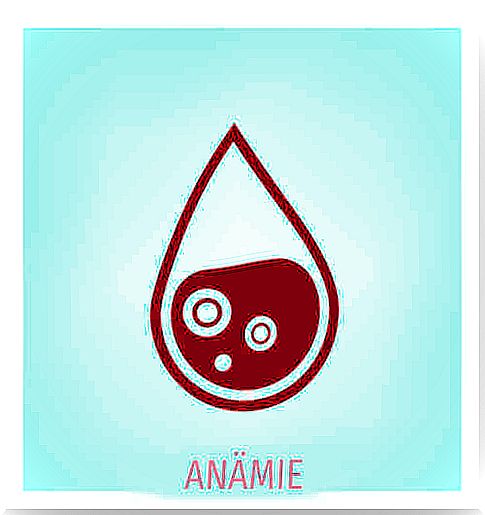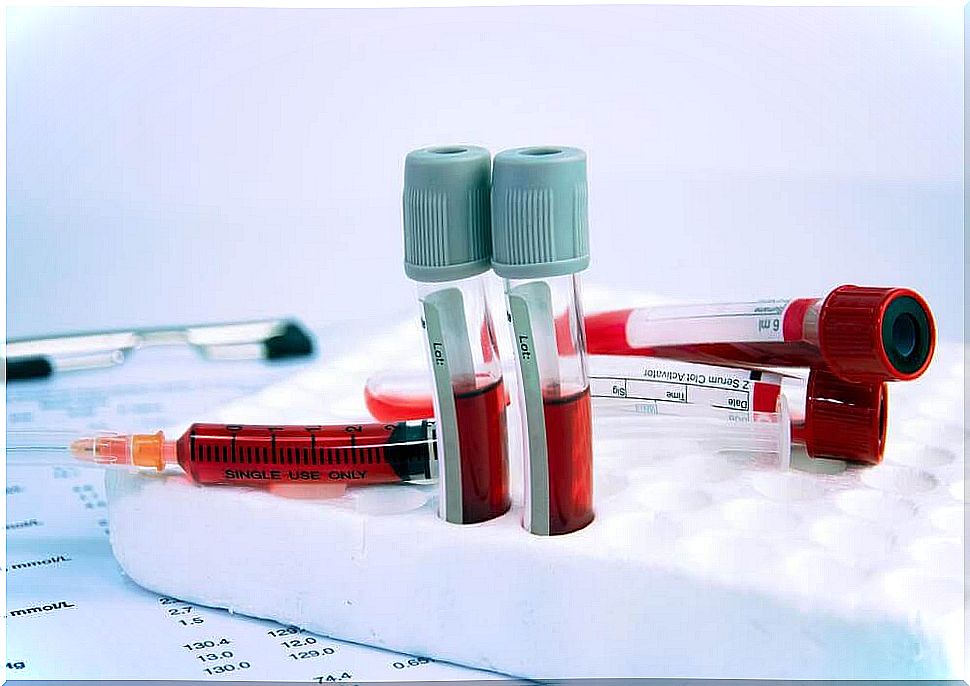Anemia: Pharmacological Treatment
The type of treatment for anemia depends on the underlying causes. A precise diagnosis is therefore important in order to be able to start the right therapy afterwards.

The pharmacological treatment of anemia depends on the underlying causes. Since different situations can trigger anemia, the therapeutic measures also vary.
Anemia causes the amount of oxygen in the blood to decrease. This happens when the concentration of hemoglobin, an iron-rich molecule in red blood cells, decreases.
Various therapies are available to solve this problem, which we will take a closer look at in this article. Pharmacological treatment of anemia aims to remedy the causes. The options available include the following:
- Nutrient replacement therapy
- Stimulation of hematopoiesis
- Immunosuppressants
- Bone marrow transplant
Possible causes of anemia
There are three main causes that can lead to anemia. It can happen that your own organism does not produce enough red blood cells. As mentioned briefly, red blood cells contain hemoglobin, a molecule that carries oxygen around the body.
Excessive bleeding, for example from a wound or menstruation, can also lead to anemia. For this reason, many young women need iron as a food supplement.
The third major cause of anemia is autoimmune diseases, which destroy red blood cells.

Pharmacological treatment of anemia
Nutrient replacement therapy
This treatment is carried out through the administration of nutritional supplements that stimulate the synthesis of erythropoietin. This protein is necessary to make new red blood cells.
Affected patients usually receive the following dietary supplements:
- Iron salts: These are given when iron deficiency anemia is involved.
- Vitamins: Above all, vitamin B12 (cobalamin), vitamin B6 (pyridoxine) and folic acid (vitamin B9) are essential for the formation of red blood cells.
Pharmacological treatment to stimulate erythropoiesis or the synthesis of erythropoietin
Another pharmacological treatment that is commonly used in anemia is drugs that stimulate erythropoiesis. These drugs encourage the production of red blood cells in the bone marrow.
They are mainly used when the anemia is caused by chronic kidney failure. They are also indicated to reduce the number of blood transfusions during or after important surgery.
The following drugs can be administered:
- Erythropoietin: This is a hormone that promotes the formation and maturation of red blood cells. The natural occurrence of erythropoietin increases when the number of red blood cells decreases. The administration of this hormone only makes sense if too little is produced by the body itself, which can be the case with chronic kidney failure.
- Colony Stimulating Factors: The granulocyte colony stimulating factors such as filgrastim or lenograstim and the granulocyte macrophage colony stimulating factors such as sargramostim are hormones that stimulate the growth of blood cells that are produced in the bone marrow. This is why they are beneficial if there is neutropenia from chemotherapy or a bone marrow transplant.
Pharmacological treatment with immunosuppressants
These drugs weaken the immune system, but they are used in pathologies where the patient’s own immune system attacks the patient. Some types of anemia are associated with a poorly functioning immune system. That is why those affected receive immunosuppressants to treat these diseases.

Bone marrow transplant
A bone marrow transplant can have excellent results in certain types of anemia. This is the case, for example, with sickle cell anemia, which occurs relatively frequently. In this disease there is an increased breakdown of the red blood cells due to a congenital malformation in the hemoglobin.
This disease causes hemoglobin molecules to stick together and form rigid formations. A successful bone marrow transplant has already been performed on a patient with this disease.
Each type of anemia requires specific pharmacological treatment
As explained earlier, the pharmacological treatment of anemia will depend on the specific causes that lead to it. Let your doctor examine you and advise you, who can determine which treatment is best for you.









